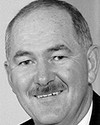Mr. Speaker, it is indeed quite gratifying to hear the comments from my colleague and great friend. I salute his mom once again for a great breakfast in Richmond, B.C.
I will say this much to the hon. member. While I did come fully prepared to speak with notes today, I will make him a promise that the next time I make an adjournment debate speech, I will speak without prepared notes. That is a fact. I will make my points and I will make them the way he did which was in a most compelling way. However, I have the pleasure right now to speak from notes.
It is my pleasure to speak about the progress that has been made to accommodate aboriginal peoples in Atlantic Canada pursuant to the Supreme Court of Canada's Marshall decision of November 1999.
The conditions are coming into place for a successful, orderly and regulated fishery in the maritimes and Quebec. We have now made interim fishing agreements or agreements in principle with over half of the aboriginal communities. We expect that most of these will be in place by June.
We listened to the voices of the fishing industry who asked that a voluntary licence retirement program be used to make room for aboriginal fishers in the commercial fishery. We initiated such a program over three months ago and have received some 1,400 applications and have acquired over 350 licences so far.
The approach is working well and we are matching supply and demand. The overall number of aboriginal entrants remains low relative to the total of 23,000 vessels and 44,000 fishermen—

